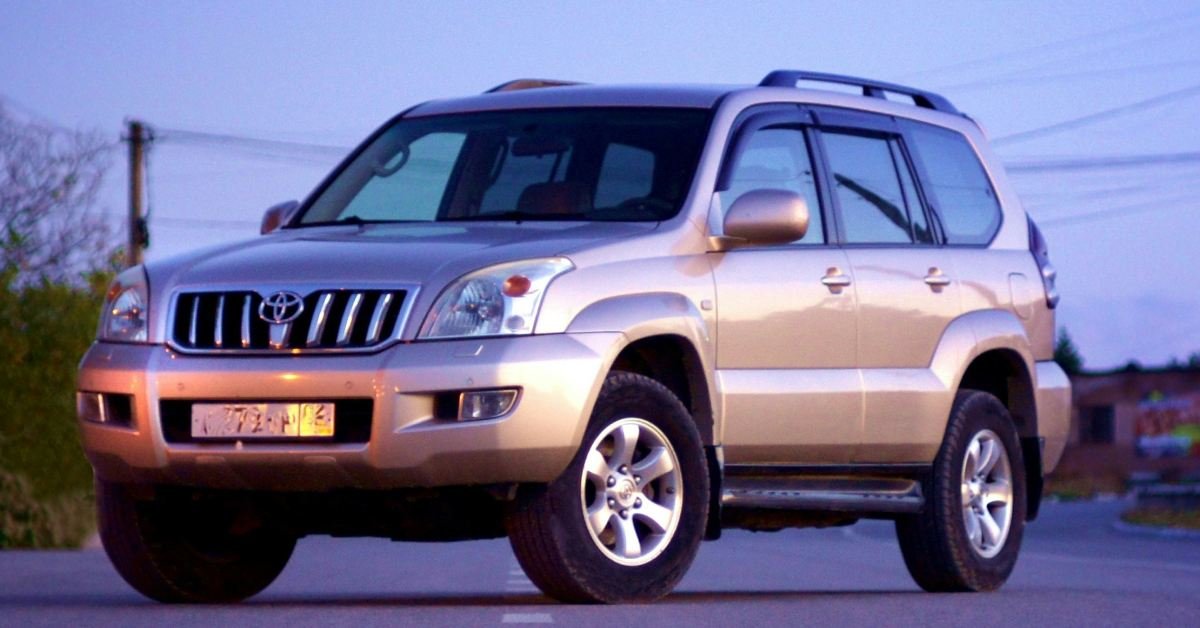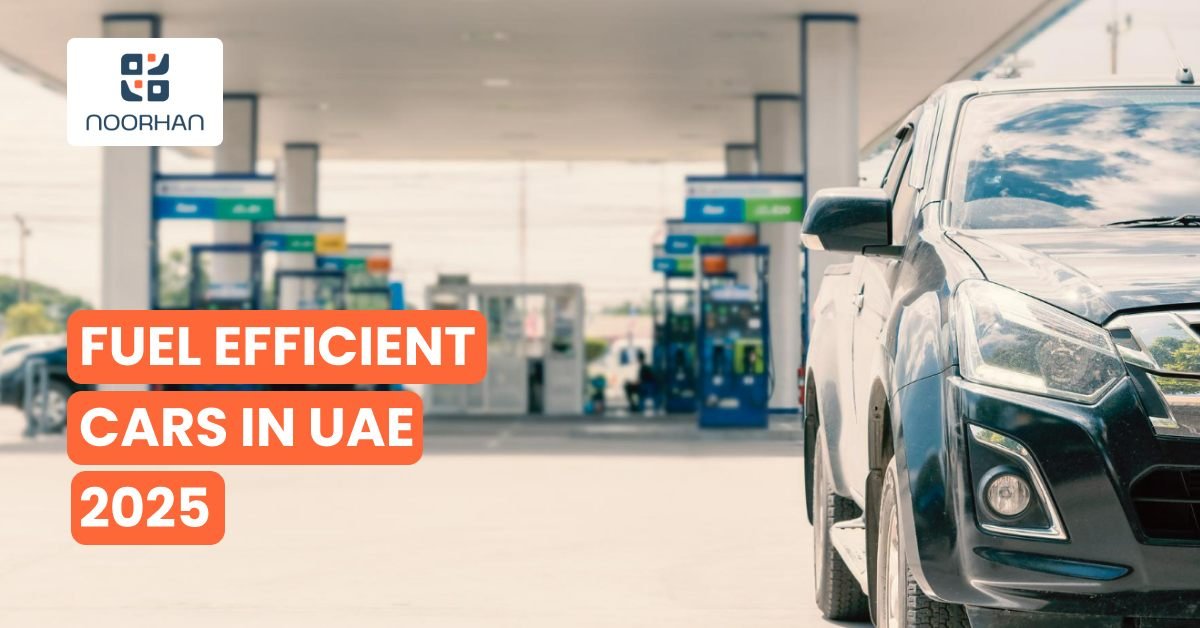-
Toyota Prado Air Suspension OverviewToyota Prado Air Suspension Overview
-
Safety Benefits in the UAESafety Benefits in the UAE
-
Costs & Economic ImpactCosts & Economic Impact
-
Regulatory & Legal RequirementsRegulatory & Legal Requirements
-
Climate-Specific Maintenance TipsClimate-Specific Maintenance Tips
-
Troubleshooting IssuesTroubleshooting Issues
-
FAQsFAQs
-
Action PlanAction Plan
Toyota Prado vehicles are among the most popular SUVs in the UAE, prized for their reliability and performance in desert conditions. However, one component that frequently causes concerns for Prado owners is the air suspension compressor. This critical component faces unique challenges in the UAE’s harsh climate, where temperatures can soar above 50°C and sand infiltration is a constant threat. The air suspension system, while providing superior ride comfort and load-leveling capabilities, requires specialized maintenance and understanding to prevent costly failures.
Economic Impact in the UAE Market
The economic impact of air suspension compressor failure extends beyond simple repair costs. In the UAE’s competitive automotive market, where the average monthly salary ranges from AED 4,810 to AED 99,000 depending on experience and sector, unexpected repair bills can significantly impact household budgets. Understanding the warning signs, maintenance requirements, and repair options becomes crucial for UAE residents who depend on their Prado for daily transportation, weekend desert adventures, or commercial operations.
Legal and Regulatory Importance
The UAE’s stringent vehicle inspection requirements add another layer of importance to maintaining a functional air suspension system. Under the latest traffic laws implemented in March 2025, mandatory vehicle inspections now include thorough checks of suspension components, with penalties imposed for vehicles deemed unfit for road use due to faulty suspension systems. This regulatory environment makes proactive maintenance not just a matter of comfort, but a legal necessity for vehicle registration renewal and road safety compliance.
Understanding Toyota Prado Air Suspension Systems
System Components and Design
The Toyota Prado’s air suspension system represents sophisticated engineering designed to provide optimal ride quality across varying load conditions and terrain types. The system consists of several key components: air springs (bellows), shock absorbers, an air compressor, height sensors, and an electronic control unit that manages the entire system. In UAE conditions, this system faces particular stress from extreme heat, sand infiltration, and the frequent transitions between smooth highways and challenging off-road terrain that characterize local driving patterns.
The Air Compressor Function
The air compressor serves as the heart of the system, pressurizing air to maintain proper ride height and adjust suspension stiffness based on load and driving conditions. Located beneath the vehicle, the compressor endures direct exposure to the UAE’s harsh environmental conditions. The combination of extreme heat, humidity during certain seasons, and the ever-present fine sand creates an environment where compressor components face accelerated wear and potential failure.
Model-Specific Considerations
Modern Prado models, particularly the 120 and 150 series popular in the UAE market, incorporate advanced air suspension technology that automatically adjusts to maintain optimal ground clearance and ride comfort. However, this sophistication comes with increased complexity and potential failure points. The system’s electronic components, while generally reliable, can be affected by the extreme temperature variations experienced in the UAE, where daytime temperatures can exceed 50°C while nighttime temperatures may drop to 20°C or lower.
UAE Driving Conditions Impact
The desert driving conditions prevalent in the UAE place additional demands on the air suspension system. Sand infiltration can affect seals and moving components, while the frequent loading and unloading of vehicles for camping and recreational activities puts stress on the air springs and compressor. Understanding these local factors helps Prado owners appreciate why their air suspension systems may require more frequent attention than vehicles operated in more temperate climates.
Regional Safety Considerations and Benefits
UAE Traffic Safety Context
The UAE’s diverse driving environment, from urban highways to desert dunes, makes a properly functioning air suspension system crucial for vehicle safety and control. Recent UAE traffic statistics show concerning trends, with road accidents increasing by 46% in 2024 as the population surged. A total of 4,748 major accidents were recorded in 2024, representing an 8% increase compared to 2023. These statistics highlight the importance of maintaining all vehicle safety systems, including suspension components.
Desert Driving Safety
Desert driving, a popular recreational activity among UAE residents, places unique demands on suspension systems. The air suspension’s ability to adjust ride height provides crucial ground clearance for navigating sand dunes and rocky terrain. However, compressor failure in remote desert locations can strand vehicles and create safety hazards. The system’s load-leveling capability also proves essential for maintaining vehicle stability when carrying camping equipment, water supplies, and other gear necessary for desert expeditions.
Climate-Related Safety Factors
The UAE’s extreme climate conditions create additional safety considerations for air suspension systems. High ambient temperatures can cause air pressure fluctuations, while sand infiltration can compromise seals and moving components. These environmental factors can lead to gradual system degradation that may not be immediately apparent to drivers but can result in sudden failure during critical driving situations.
Emergency Response Considerations
Emergency response capabilities become particularly important given the UAE’s vast desert areas and remote locations. A functioning air suspension system can mean the difference between successfully navigating challenging terrain to reach help or becoming stranded in potentially dangerous conditions. The system’s ability to maintain optimal tire contact with varying surfaces enhances traction and control, crucial factors for safe desert navigation.
Economic Impact and Cost Considerations
Financial Implications Overview
The financial implications of air suspension compressor failure extend far beyond the immediate repair costs. In the UAE’s economy, where vehicle reliability directly impacts productivity and earning potential, understanding the potential costs becomes crucial for informed decision-making. Professional diagnosis of air suspension problems and repair costs vary significantly depending on the specific issue, service provider, and component availability.
VAT and Additional Costs
The UAE’s VAT system adds 5% to all automotive repair services and parts, making repair costs an important consideration for vehicle owners. When combined with labor costs, diagnostic fees, and potential additional component replacements, the total expense for suspension system repairs can be substantial.
Preventive Maintenance Value
Preventive maintenance presents a more economical approach to air suspension management. Regular inspection and maintenance services can identify potential problems before they result in complete system failure. This proactive approach can extend compressor life significantly, representing potential savings compared to emergency replacement scenarios.
Resale Value Impact
The impact on vehicle resale value also merits consideration in the UAE’s active used car market. Vehicles with documented suspension problems typically command lower prices than comparable units with properly maintained systems. For context, the Toyota Land Cruiser Prado in the UAE starts at AED 199,900 for new models, making maintenance of existing vehicles an important economic consideration.
Regulatory Compliance and Legal Requirements
2025 Traffic Law Updates
The UAE’s evolving traffic laws place increasing emphasis on vehicle maintenance and safety compliance, with specific implications for air suspension systems. The 2025 traffic law updates, which came into effect on March 29, 2025, mandate periodic vehicle inspections that include comprehensive suspension system checks. Vehicles with compromised suspension systems face immediate roadworthiness failures, preventing registration renewal and legal road use until repairs are completed.
Dubai RTA Inspection Requirements
Dubai’s Roads and Transport Authority (RTA) has implemented mandatory online booking for vehicle inspections at all 27 technical testing centers across the emirate, with the requirement taking effect from June 2, 2025. This system change reflects the government’s commitment to ensuring thorough vehicle inspections and maintaining road safety standards. Vehicles failing suspension inspections must undergo repairs and re-inspection before receiving clearance certificates.
Penalty Structure and Compliance
The penalty structure for operating vehicles with defective suspension systems has become more stringent under the new regulations. Financial consequences, combined with the inconvenience of vehicle impoundment, make compliance with suspension maintenance requirements a practical necessity for all vehicle owners.
Professional Service Standards
Professional service standards in the UAE require certified technicians to perform suspension system inspections and repairs. The Emirates Authority for Standardisation and Metrology (Esma) oversees technical standards for automotive services, ensuring that repair facilities meet specific competency requirements. This regulatory framework provides consumer protection but also means that DIY repairs may not meet inspection standards, potentially leading to compliance issues.
Registration Renewal Process
Vehicle registration renewal processes now include more thorough mechanical inspections, with suspension systems receiving particular attention. The integration of advanced monitoring systems allows authorities to detect vehicle issues, encouraging proactive maintenance approaches. This technological advancement supports the UAE’s broader road safety objectives while creating additional compliance requirements for vehicle owners.
Climate-Adapted Maintenance Guidelines
UAE-Specific Maintenance Requirements
The UAE’s extreme climate conditions necessitate specialized maintenance approaches for air suspension systems that differ significantly from manufacturer recommendations designed for temperate climates. Summer temperatures regularly exceeding 45°C create thermal stress on compressor components, while the fine sand prevalent throughout the region can infiltrate seals and moving parts. These environmental factors require adapted maintenance schedules and specialized service approaches.
Professional Service Protocols
Professional service providers in Dubai and other UAE cities have developed climate-specific maintenance protocols that address local environmental challenges. These protocols typically recommend more frequent inspection intervals during summer months, when thermal stress peaks, and additional attention to seal integrity and air filtration systems.
Seasonal Maintenance Considerations
Seasonal maintenance adjustments become particularly important during the UAE’s brief winter months, when temperature variations can cause air pressure fluctuations and system recalibration needs. Professional technicians recommend system pressure checks and calibration adjustments during these periods to ensure optimal performance throughout the year.
Dust Storm Maintenance
The UAE’s dust storm season, typically occurring between March and August, requires additional attention to air filtration and seal maintenance. Professional service providers recommend post-storm inspections to identify potential sand infiltration issues before they cause component damage. These inspections can identify problems early and prevent more serious issues from developing.
DIY Maintenance Limitations
DIY maintenance options remain limited for air suspension systems due to their complexity and the specialized equipment required for proper diagnosis and repair. However, vehicle owners can perform basic visual inspections and maintain awareness of system warning signs. Professional guidance becomes essential for any maintenance beyond basic visual checks, particularly given the UAE’s regulatory requirements for certified repairs.
Troubleshooting Common Issues
Early Warning Signs
Air suspension compressor problems in UAE conditions typically manifest through several distinct symptoms that owners can identify before complete system failure occurs. The most common early warning sign involves unusual noises from the compressor area, particularly during startup or when the vehicle adjusts ride height. These noises, often described as grinding, squealing, or excessive cycling, indicate internal component wear accelerated by the UAE’s harsh environmental conditions.
Height Adjustment Problems
Height adjustment problems represent another common symptom, where the vehicle fails to maintain proper ride height or experiences sudden drops in rear suspension height. This issue often develops gradually, with the system initially compensating for minor leaks or compressor inefficiency before reaching a point where compensation becomes impossible. In the UAE’s extreme heat, these problems can develop more rapidly than in temperate climates.
Electronic Warning Indicators
Warning lights and error messages provide electronic indication of system problems, though these may not appear until issues have progressed significantly. The KDSS (Kinetic Dynamic Suspension System) warning message, common in newer Prado models, indicates suspension system malfunctions that require professional diagnosis. Ignoring these warnings can lead to complete system failure and potential safety hazards.
Professional Diagnostic Services
Professional diagnostic capabilities in the UAE have evolved to address climate-specific suspension issues. Major service centers in Dubai, Abu Dhabi, and other emirates now employ specialized diagnostic equipment capable of identifying air suspension problems before they result in complete failure. These diagnostic services can identify problems that might otherwise go undetected until catastrophic failure occurs.
DIY Troubleshooting Limitations
DIY troubleshooting options remain limited due to the complexity of air suspension systems and the specialized equipment required for proper diagnosis. However, vehicle owners can perform basic visual inspections of air lines, check for obvious leaks, and monitor system behavior for early warning signs. Any suspected problems should receive professional attention promptly, particularly given the UAE’s regulatory requirements for safe vehicle operation.
Frequently Asked Questions
How often should I service my Prado's air suspension in UAE conditions?
Professional service providers recommend more frequent inspections in UAE conditions compared to temperate climates. The extreme heat and sand exposure accelerate component wear, making regular attention necessary for reliable operation.
What are the signs that my air suspension compressor is failing?
Common symptoms include unusual noises during operation, failure to maintain ride height, excessive cycling of the compressor, warning lights on the dashboard, and a noticeably rougher ride quality. These symptoms often develop gradually but can progress rapidly in UAE conditions.
Are there preventive measures to extend compressor life in desert conditions?
Regular professional inspections, prompt attention to warning signs, avoiding overloading, and protecting the vehicle from excessive sand exposure can significantly extend compressor life. Professional service providers offer climate-specific maintenance programs designed for UAE conditions.
Can I drive my Prado with a failed air suspension compressor?
While possible for short distances, driving with a failed compressor compromises vehicle safety and may violate UAE traffic regulations regarding vehicle roadworthiness. The vehicle should receive professional attention immediately to avoid safety hazards and potential legal issues.
What happens if my air suspension fails during vehicle inspection?
Vehicles with failed air suspension systems will fail the mandatory inspection required for registration renewal. The vehicle cannot be legally operated until repairs are completed and a passing inspection certificate is obtained.
Can I convert my air suspension to conventional springs?
While technically possible, such modifications may affect vehicle handling, load capacity, and insurance coverage. Any modifications must receive RTA approval and may impact the vehicle’s resale value and compliance with safety regulations.
Which areas of the UAE offer specialized Prado air suspension services?
Major cities throughout the UAE offer specialized air suspension services, with certified technicians available in Dubai, Abu Dhabi, Sharjah, and other emirates. Professional service providers maintain specialized diagnostic equipment and parts inventory for Prado models.
Action Plan for UAE Prado Owners
Immediate Assessment Steps
Immediate steps for current Prado owners should begin with a comprehensive inspection of the air suspension system, particularly for vehicles over five years old or those with high mileage. Contact a certified service provider within the next 30 days to establish a baseline assessment of your system’s condition and identify any developing problems before they become critical failures.
Service Provider Selection
Establish a relationship with a reputable service provider who understands UAE-specific challenges and maintains proper diagnostic equipment for Prado air suspension systems. Research providers in your area, verify their certifications, and compare service offerings to find the best match for your needs and requirements.
Financial Planning
Budget planning should include provision for preventive maintenance and potential repairs. This financial planning ensures that suspension maintenance doesn’t create unexpected budget strain while maintaining vehicle reliability and safety compliance.
Maintenance Scheduling
Create a maintenance schedule that accounts for UAE-specific requirements, including more frequent inspections during summer months and post-sandstorm checks. Document all service activities to maintain warranty coverage and demonstrate compliance with regulatory requirements during vehicle inspections.
Regulatory Compliance
Stay informed about regulatory changes and ensure your vehicle meets all current UAE traffic law requirements. The new 2025 regulations emphasize the importance of proper vehicle maintenance, making proactive care essential for continued legal operation.
📝Important Note: Repair costs, service pricing, and specific maintenance intervals should be confirmed directly with certified service providers, as these can vary based on current market conditions, parts availability, and specific vehicle requirements. Always consult with qualified technicians for vehicle-specific guidance.









